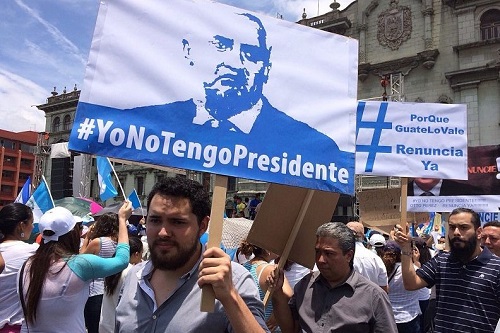CC photo
By
Ricardo Swire
A judge’s decision is influenced by how he/she defines the role of a jurist. Some believe strongly in “judicial activism” or the need to defend individual rights and liberties. Such justices stop actions and legislation from other government branches he/she perceives infringe on these rights. They view their roles as legal activists and use judicial power to broaden personal liberty, justice and equality.
Other legal luminaries practice “judicial restraint.” Such practitioners often defer decisions and policymaking to elected branches of government, to focus on a narrower interpretation of the law. Judicial courts can be affected by the “court of public opinion.” Although isolated from politics and volatility of the electorate, judges can still be swayed by special-interest pressure.
During June 2018 two Guatemalan alternate judges released ten high-level suspects, charged in the 2015 “La Linea” national fraud scam, from pre-trial detention. Between May 2014 and April 2015 La Linea’s criminal network defrauded the state of US$3.6 million. While hearing the case the substantive judge went on holiday and one temporary justice freed seven accused the other released three. Guatemala’s Internal Revenue Service top boss plus the former Port of Quetzal Administrator among persons released.
Reasons varied from medical conditions to low flight risk status. The scenarios presented evidence of improper influence on Guatemala’s judiciary. The alternate justices’ controversial rulings were contrary to the Attorney General’s Office Anti-Impunity Unit or FECI’s advice. National security intelligence analysts considered the decisions indicative of structural issues within Guatemala’s justice system. Lack of adequate oversight allows alternate justices, plus substandard legislation that regulates suitability of judges and lawyers.
The USAID’s judicial reform program was integral in attempting a Guatemalan judicial metamorphosis. Washington provided the Central American country’s criminal justice system with the capacity and fortitude to prosecute high-level corruption. The introduction of oral court proceedings brought novel structures and measures. A revised criminal code, plus new roles and responsibilities of judges, prosecutors and defence attorneys designed to give Guatemala’s court system better efficiency, transparency and effectiveness.
Ricardo Swire
Ricardo Swire is the Principal Consultant at R-L-H Security Consultants & Business Support Services and writes on a number of important issues.



No Comments Yet!
You can be first to comment this post!